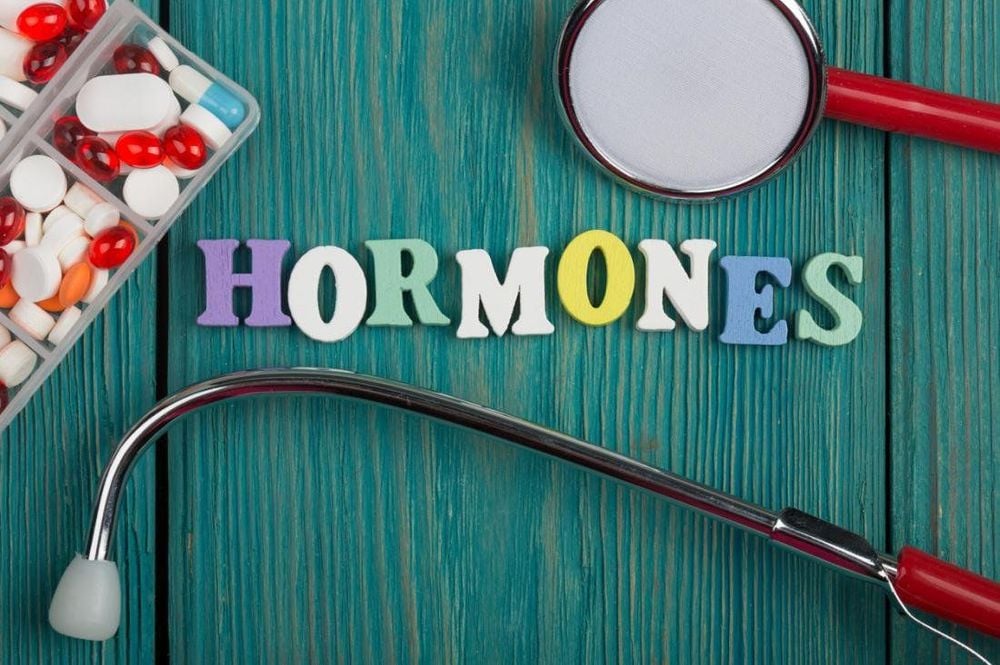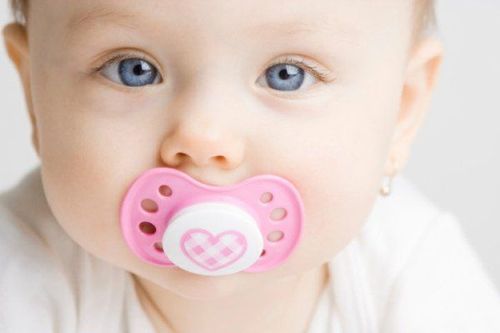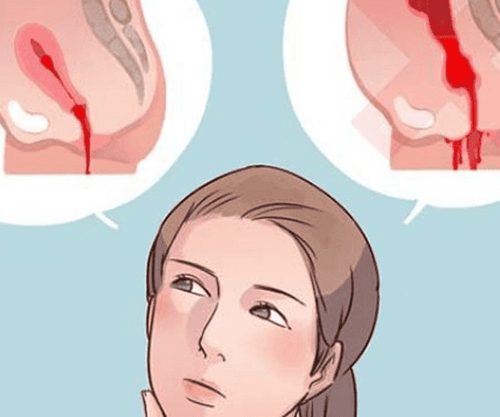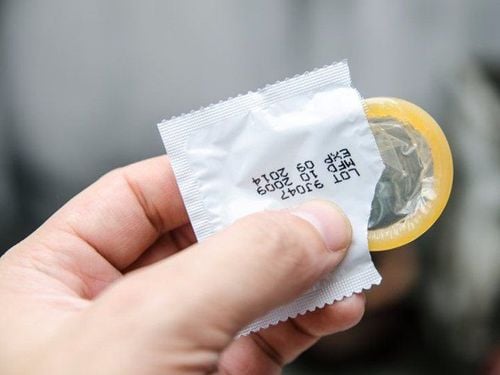This article is professionally consulted by - Obstetrician and Gynecologist - Department of Obstetrics and Gynecology - Vinmec Phu Quoc International General Hospital.
Menstruation in women often changes after childbirth, such as feeling heavier or more painful, while others experience lighter periods. Typically, menstruation after childbirth is irregular but may return to normal over time. The following article will explain why menstrual disorders occur after childbirth.
1. Is menstruation regular after childbirth?
Childbirth is a significant physical trauma for women and requires time for recovery. There is no standard definition for post-birth menstruation, but typically the first periods after childbirth will be different from those before pregnancy.
There are several reasons why menstruation may change after childbirth, including:
• The uterus needs time to return to its normal size
• Hormone levels change
• Breastfeeding affects hormone levels
Some women notice that their menstruation is heavier after childbirth. Others may observe that the blood has a different color, contains more clots than usual, or experience more intense cramps.
According to experts, most women will notice their menstruation returning to "normal" over time, meaning it may resemble their pre-pregnancy cycles.
In women who do not breastfeed or breastfeed irregularly, menstruation tends to return more quickly.
A 2011 analysis of six previous studies found that most women experience their first period 45 to 94 days after childbirth. A study in the review showed that the average first period occurred 74 days postpartum.

The main factor affecting the timing of the first period after childbirth is ovulation. Women who want to check if they are ovulating can use an ovulation predictor kit, which is available at pharmacies and online. Measuring body temperature daily can also help detect ovulation.
Especially in the months immediately after childbirth, irregular menstruation often occurs. Women who are breastfeeding are more likely to experience irregular periods because breastfeeding hormones can delay or make ovulation irregular.
Even in women who are not breastfeeding, menstruation can be irregular as the body needs time to recover after pregnancy and childbirth.
Over time, menstruation will return to normal. However, some women may have irregular periods even before pregnancy, such as those with polycystic ovary syndrome (PCOS) or endometriosis.
If women are concerned about irregular periods after childbirth, it is best for them to talk to a doctor to identify the cause and receive appropriate treatment.
2. Why does breastfeeding lead to the absence of menstruation?

Breastfeeding is known to be a cause of delayed periods. While some women have no menstruation during the months they are breastfeeding, others experience irregular periods. The main reason for this is the hormonal changes in a woman's body after childbirth.
When your baby is born, you are equipped with the necessary natural nutrients for breastfeeding. Unless you are unable to breastfeed, doctors always encourage mothers to start breastfeeding as soon as possible. This is often considered the safest and healthiest source of nutrition for newborns.
Although it may seem like breast milk simply appears when your baby is born, there are actually many factors influencing the milk production process. In fact, just like the hormones that support your pregnancy, they are also responsible for breastfeeding. Prolactin is the main hormone responsible for milk production. It is produced by the pituitary gland, located in the brain.
Prolactin also has the effect of delaying menstruation. Breastfeeding keeps this hormone level high, so the longer you breastfeed, the more likely you are to experience delayed or absent periods. On the other hand, when you wean your baby, your period may return relatively quickly afterward.

Your baby will consume the most breast milk during the first few months of life. As your baby needs less milk and begins eating solid foods, the pituitary gland will sense this change in feeding and produce less prolactin. As prolactin levels decrease, you may notice your menstrual cycle returning, even though you are still breastfeeding.
If you have your period while breastfeeding, you may also notice other sudden changes. For example, your baby may show less interest in nursing and may eat less during your menstrual cycle. This is believed to be related to a change in the taste of your milk.
Alternatively, it could be the opposite. Since prolactin controls milk production, a decrease in milk supply during menstruation may cause your baby to want to nurse more frequently.
There is no specific timeline for when your menstrual cycle will return to normal, as every woman is different. It is likely that if your cycles were relatively regular before pregnancy, your periods will return quickly and normalize after you stop breastfeeding.
Experts suggest that the timeline for normalizing menstruation postpartum is anywhere from six months to two years.
It is also important to note that the absence of menstruation does not necessarily mean you are not ovulating. Some women believe they cannot get pregnant while breastfeeding if they do not have menstruation. This is one of the leading causes of unexpected pregnancies in breastfeeding mothers.
Although not impossible, pregnancy may be more challenging while breastfeeding. Remember that prolactin is responsible for both milk production and supporting pregnancy. It can be difficult for the body to support both at the same time. If you want to conceive during this time, speak to your doctor about your options.
3. Lochia after childbirth

Lochia is the discharge from the vagina following childbirth. It begins with heavy bleeding, which may be dark red and contain blood clots.
Over the course of several days or weeks, the blood will lighten, eventually turning pink, brown, and then clear.
Typically, women experience cramping while passing lochia because the uterus is contracting back to its normal size.
Lochia is not menstrual blood. It is a sign that the body is still recovering from childbirth as the uterine lining sheds.
A 2012 study showed that lochia bleeding lasts from 24 to 36 days. However, only one study followed participants until the bleeding stopped, and the results indicated that postpartum bleeding continued for at least 3 to 5 weeks, but it could last longer.
You may confuse lochia with menstruation or vice versa. While both lochia and menstruation start with fresh red blood, lochia tends to lighten in color after a few days, while menstrual blood becomes darker over time.
4. Contraception after childbirth

You can use safe contraceptive methods immediately after childbirth. However, doctors usually advise waiting a few weeks or longer before starting combined contraceptive pills.
If women wish to avoid using hormonal contraception, they can consider using condoms, a vaginal diaphragm, a hormone-free intrauterine device (IUD), or fertility awareness methods.
Hormonal contraceptive methods can help regulate menstruation during the postpartumperiod. These methods include combined oral contraceptives containing estrogen and progestin or progestin-only pills, as well as hormonal IUDs, injections, or implants.
Some contraceptive options may stop menstruation or cause lighter periods. Doctors may recommend these options for women who experience heavy or painful periods.
Breastfeeding women may be concerned about the impact of contraceptive methods on their baby or milk production.
A 2012 study compared two types of birth control pills—combined pills and progestin-only pills—and found no significant differences in breastfeeding or milk production.
Although hormonal contraceptives are safe to use while breastfeeding, mothers should still consult their doctor about any new medications before starting them.
When to see a doctor?
After childbirth, your doctor or midwife should provide guidance on warning signs of serious problems. There are many types of normal bleeding, depending on the method of delivery, the woman’s medical history, and other personal factors.
You should immediately seek medical attention if you experience any of the following signs:
• Excessive bleeding, soaking a pad within one hour
• Bleeding accompanied by fever
• Severe cramps
• Blood clots larger than a golf ball
To arrange an appointment, please call HOTLINE or make your reservation directly HERE. You may also download the MyVinmec app to schedule appointments faster and manage your reservations more conveniently.
References: parents.com, medicalnewstoday.com
To arrange an appointment, please call HOTLINE or make your reservation directly HERE. You may also download the MyVinmec app to schedule appointments faster and manage your reservations more conveniently.







